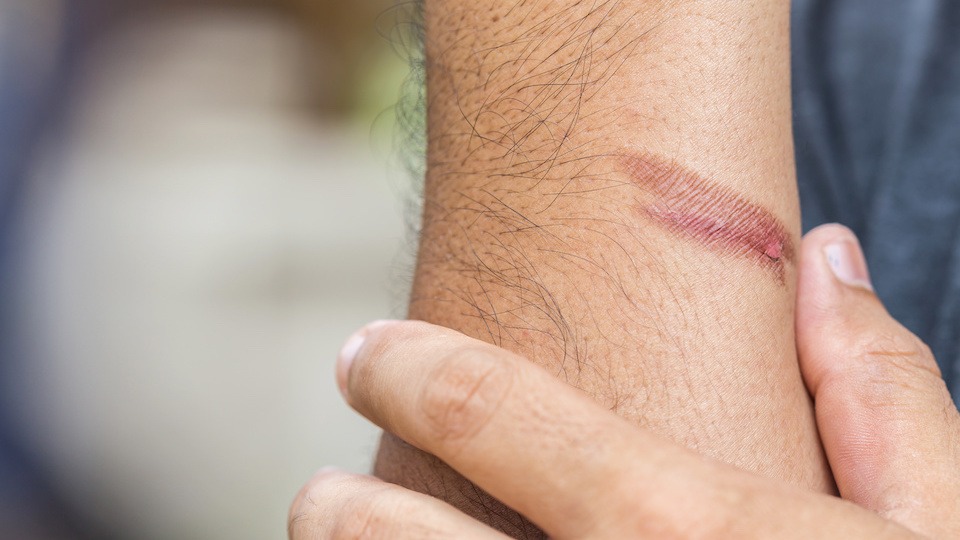Burns are some of the most common household injuries, yet so many people have no clue what to do when they accidentally bump into that hot pan straight from the oven or get a little too close to that curling iron. It’s time to set the record straight, dispel some incorrect assumptions, and help you prepare for the next time you are left with a stinging burn.
The difference between major and minor burns
Minor:
Minor burns can usually be treated at home and will heal within three weeks.
- Skin is unbroken
- Pain
- Blisters
- Superficial redness
- Smaller than 3 inches in diameter
- Swelling
If you have a minor burn and notice any of these signs of infection as the wound heals, go to the doctor as soon as possible.
- Increased pain
- Redness
- Continued swelling
- Oozing or pus
- Fever
- Swollen lymph nodes
- Redstreak from the burn
Major:
If you have a burn with any of the following characteristics, seek medical attention immediately or call 911 for emergency transportation.
- Open skin
- Leathery appearance
- Extreme blistering
- Deep
- Cause the skin to seem charred, or cause patches of white brown or black
- Covers a major joint such as the elbow or knee
- Larger than 3 inches in diameter
- Covers the hands, feet, face, groin, buttocks
Until you can receive medical attention, keep the burned area covered with a clean cloth, elevate the wound above heart level, and watch for signs of shock such as pale complexion or shallow breathing.
How to treat a burn at home
Remember, do not attempt home care for any major burns. Minor burns, however, will usually respond well to these home remedies.
Cool the burn
Run the burn under cool (not cold) water for about five minutes. This will help ease the shock of the injury and relieve pain. You can also use a cool compress if it is in an awkward location.
Take a pain reliever
An over-the-counter pain reliever such as Tylenol, Ibuprophen, or Advil will help you deal with the stinging sensation and diminish the pain.
Apply ointment
Once you have allowed your minor burn to cool, apply a layer of petroleum jelly or aloe vera to keep the area moist and prevent peeling and itching skin. Do not use antibiotic ointment on burns as it could cause an allergic reaction. Minor burns should not become infected with proper care.
Remove constricting jewelry
Most burns will cause swelling, so it is vital to remove any constricting jewelry such as rings or bracelets if the wound is near or on your hand.
Cover
Cover the burn loosely with a sterile, nonadhesive bandage such as gauze to protect the skin as it heals. A dressing will help prevent infection and reduce pain.
Apply honey
After the initial shock, you may still experience pain and soreness for a few days. Studies have shown that due to its antifungal, antibacterial, and wound-healing properties, honey could actually help heal burns and may reduce inflammation as well.
Protect it from the sun
Once the skin has been burned, it is incredibly susceptible to blistering and should be protected from the sun as much as possible. Even after your burn has healed, it is important to keep it covered whenever you go outside and apply mineral sunscreen to the scar.
How NOT to treat a burn
Never put ice on a burn: Though it may provide temporary relief, slathering an ice cube on your cooked skin will only cause complications during healing. Depending on the severity of the burn, this practice could lead to damaged tissue and may actually prevent your skin from repairing itself.
Do not pop the blisters: Blisters help the skin heal and protect against infection. Do not pop them intentionally. If blisters do pop, clean the area with water and rebandage the burn.
Do not put butter on it: For some reason, the myth persists that butter is the ideal burn relief tool. In fact, butter retains heat and could even introduce harmful bacteria to your wound.
Other things to keep away from your burn:
- Coconut oil or any oil
- Egg whites
- Toothpaste
Note: If your tetanus vaccination is not up to date, it is important to make an appointment with your doctor and get this shot as soon as possible.
-The UpWellness Team









